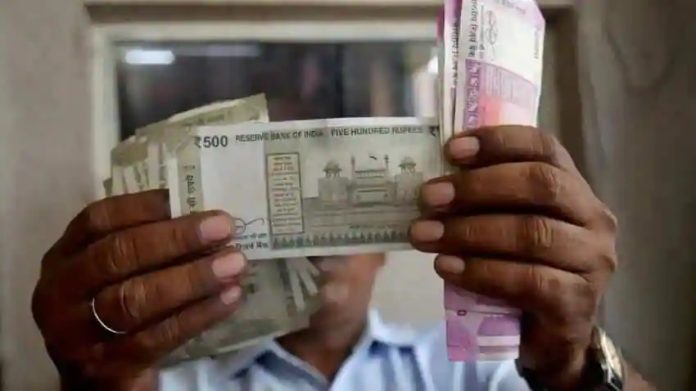National Pension System: Government employees are continuously demanding implementation of the old pension scheme. Protests are also going on regarding this. Till now, government employees in 5 states are getting the old pension scheme. Recently, the Central Government had made it clear in the Parliament that there is no consideration of implementing the Old Pension Scheme (OPS).
The Central Government is going to make important changes in the National Pension System (NPS). The Finance Ministry is planning to announce changes in the National Pension Scheme (NPS) for government employees by the end of the year.
A top government official has said that the central government is considering adopting the Andhra Pradesh model. The Andhra model guarantees pension based on 40-50% of the employee’s last basic salary. The proposed scheme would be market-linked, with the government meeting any shortfall in the pension fund. Employees will continue to contribute as before, while the government’s contribution will increase.
A top Finance Ministry official said, “The new scheme will be announced by the end of the year. The committee is working on the modalities of the scheme which is mainly based on the Andhra Pradesh model. It will be market linked and the Center will ensure that pensioners get at least 40-50% of their last salary.”
Currently employees contribute 10% of their basic salary to the National Pension System (NPS), while the government deposits 14% into the employees’ NPS account. However, it is not clear whether the new scheme will be inflation linked like the Andhra scheme or not. It is further expected that the committee headed by the Finance Secretary can discuss this further in its upcoming meeting.
According to sources, there is pressure from BJP-ruled states to amend the National Pension System and introduce a scheme similar to the old pension system to attract voters before the elections. Employees in 5 states are getting the benefits of the old pension system.
Under Andhra’s pension scheme, pensioners get 50% of their last basic pay along with Dearness Allowance (DA), which is linked to inflation. State and central government employees account for 79% of the Rs 9 lakh crore assets under management of the National Pension Scheme, according to data available with the Pension Fund Regulatory and Development Authority (PFRDA), the regulator of the national pension system. As of March 31, 2023, the number of subscribers under various schemes under NPS was 6.3 crore. Of the total customers, state government employees were 60.72 lakh, while central government employees were 23.86 lakh.
Government’s mood on Eighth Pay Commission
- Eighth Pay Commission is also being demanded by the employees. But the government has not yet clarified its stand. However, experts believe that government employees should have some patience. Because, the government will not say anything yet regarding the 8th Pay Commission. Actually, there is still time for its planning.
- All avenues for the 8th Pay Commission are not closed yet. The discussion is that the government can also implement it after the general elections of 2024. Meaning formation of a new pay commission is possible. Salary will continue to increase along with Dearness Allowance (DA Hike). But, salary revision will happen only at the time of 8th Pay Commission. The increase in the 8th Pay Commission in the year 2024 can be quite big.
When can the new pay structure be implemented?
If the 8th Pay Commission is constituted by the end of the year 2024, then it will have to be implemented in the next 2 years. Meaning, there may be a situation of implementing it (8th Pay Commission) from 2026. If this happens, it will be the biggest salary hike for central employees till date.
If sources are to be believed, there may be many changes in the 8th Pay Commission as compared to the 7th Pay Commission. The decision to constitute the Pay Commission can also be changed once in 10 years.



